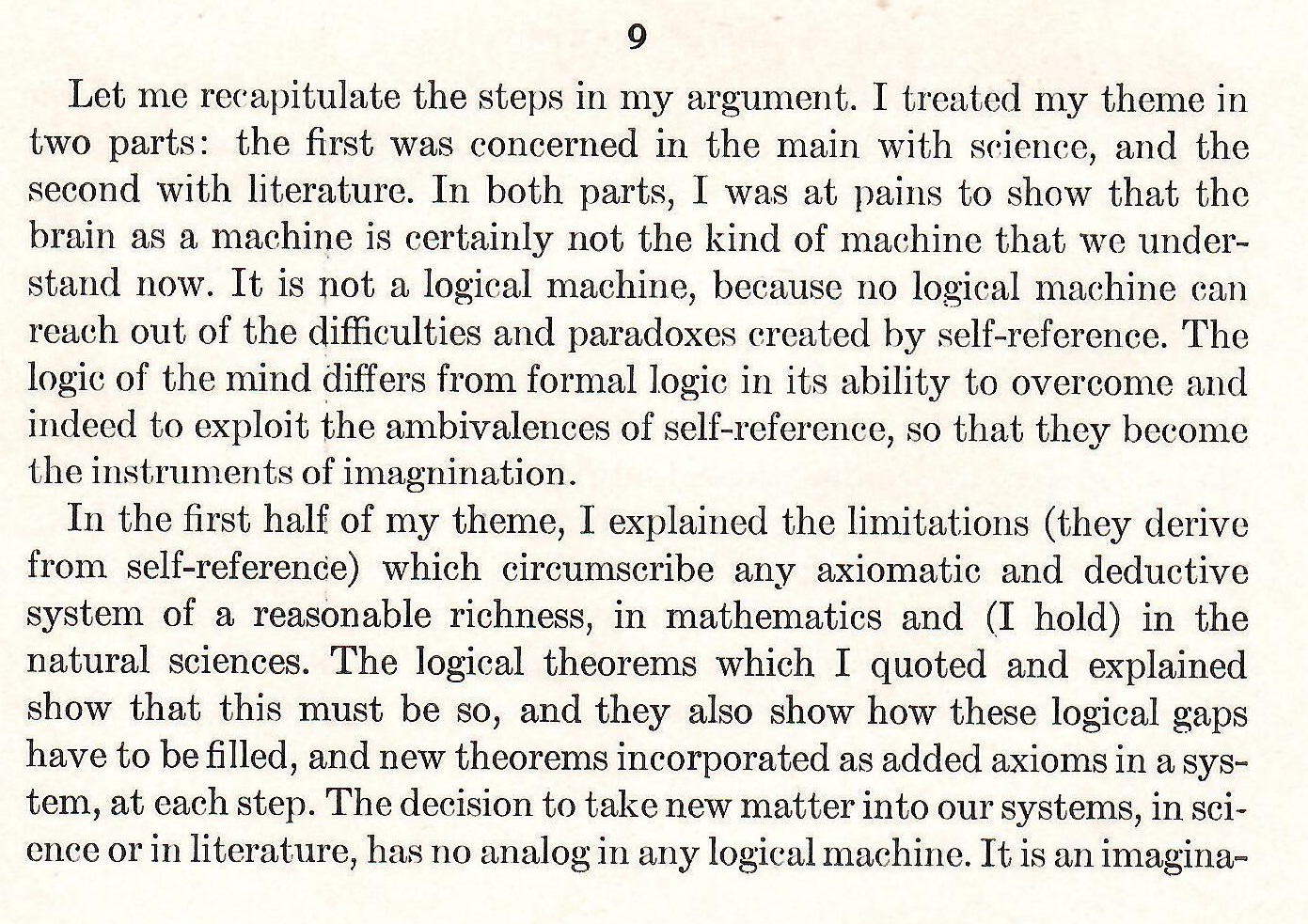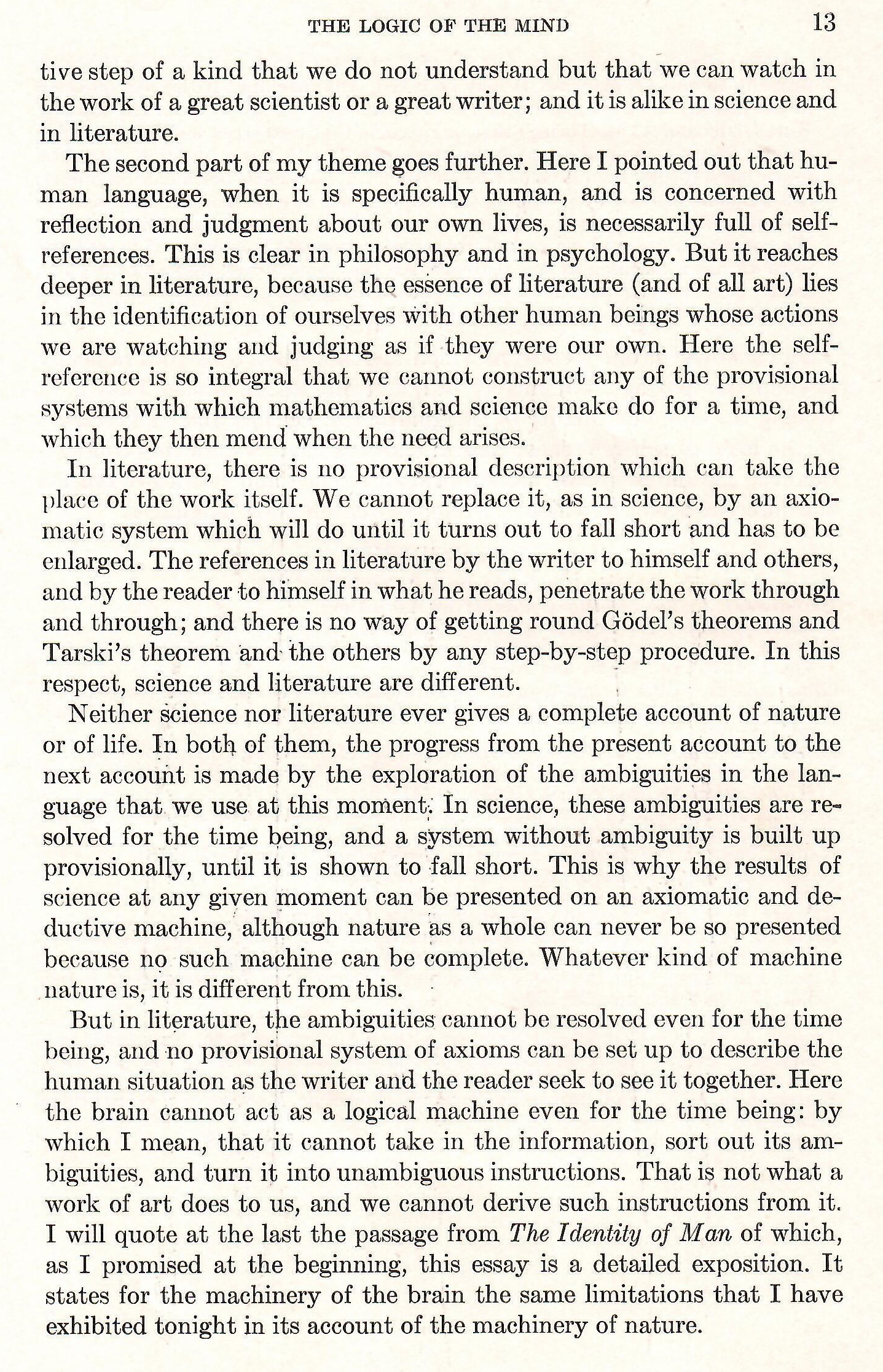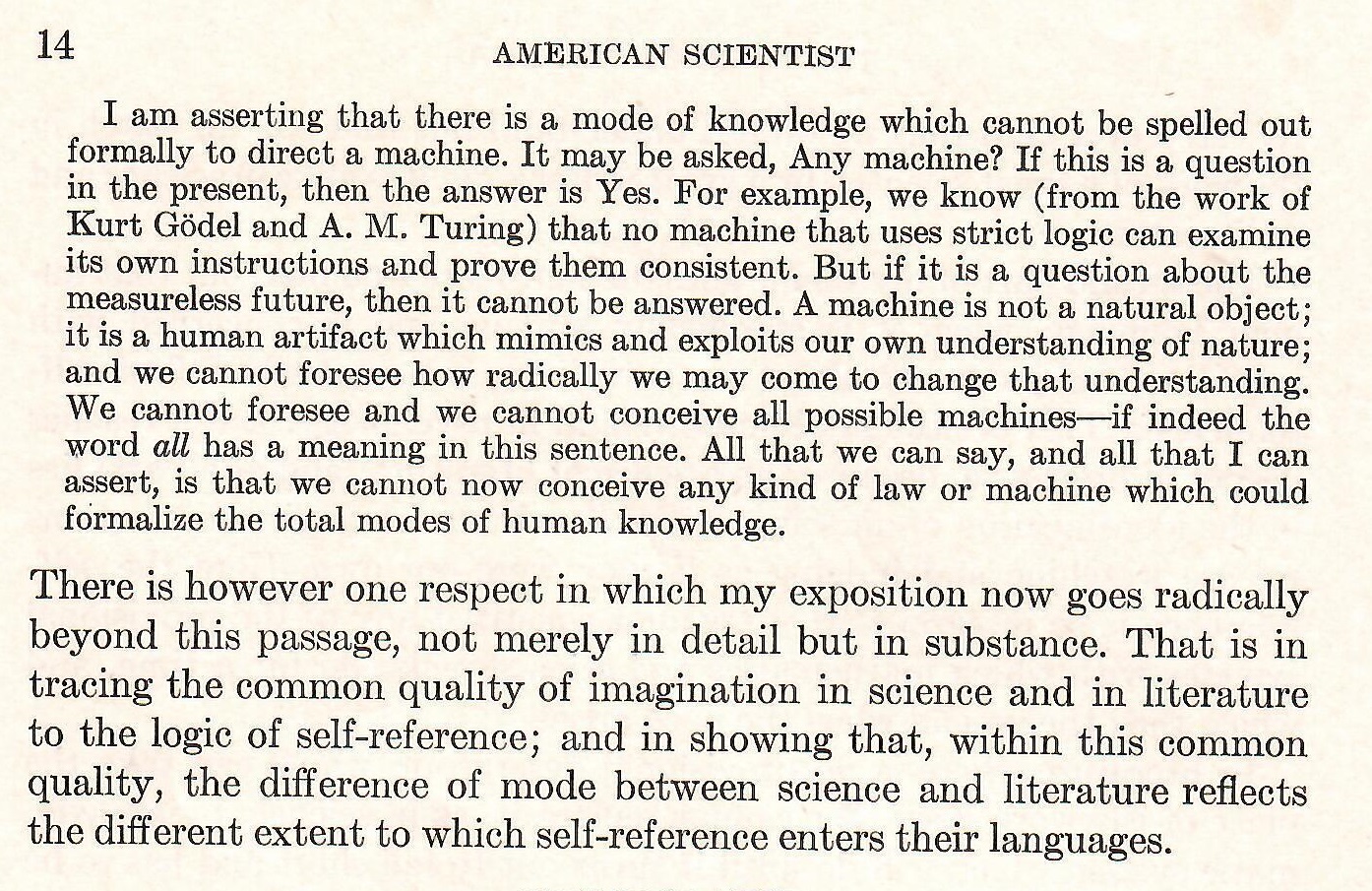Jakob Bronowski Article in American Scientist
Not being a mathematician or a trained logician I was surprised when I read this article by an eminent scientist of the past saying that mathematical language was not precise for the same reasons that spoken and written language are.
I have become aware of the imprecision of language in recent years as I work through philosophical difficulties using literary fiction, but I never would have thought of mathematics as imprecise. Of course, I don’t use anything but the most simple equations. They are precise and Bronowski says that is because they are so very simple.
Read and Become Aware
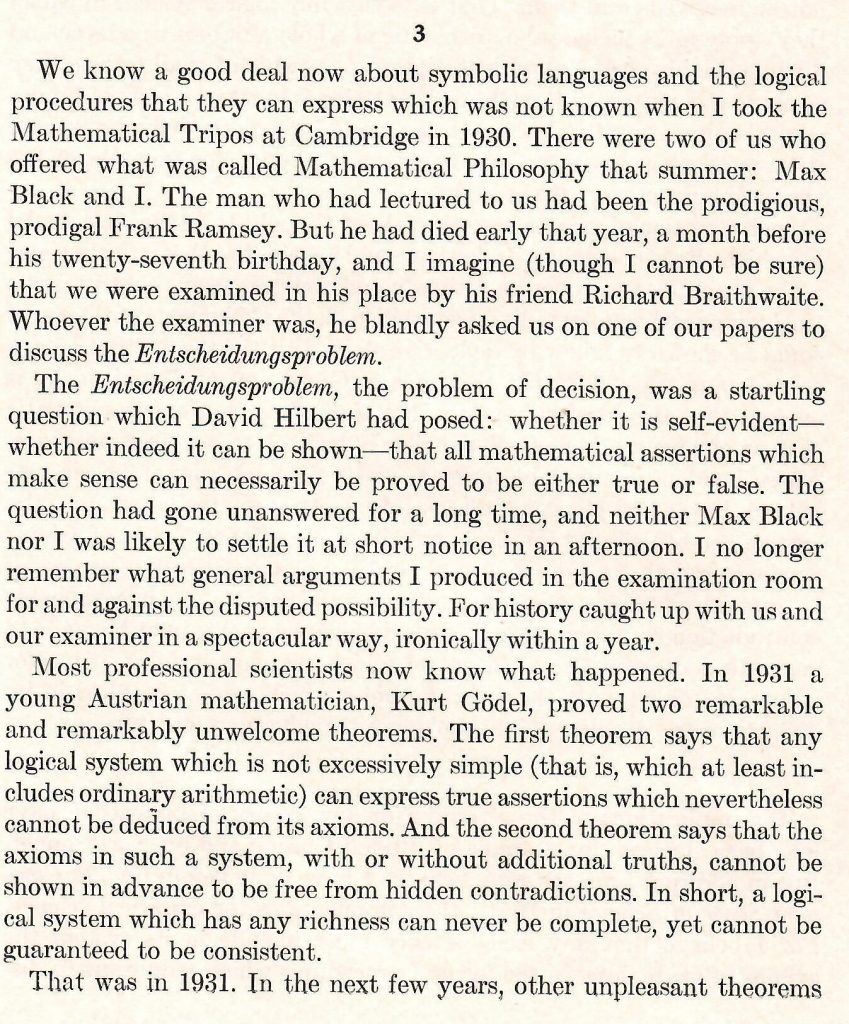
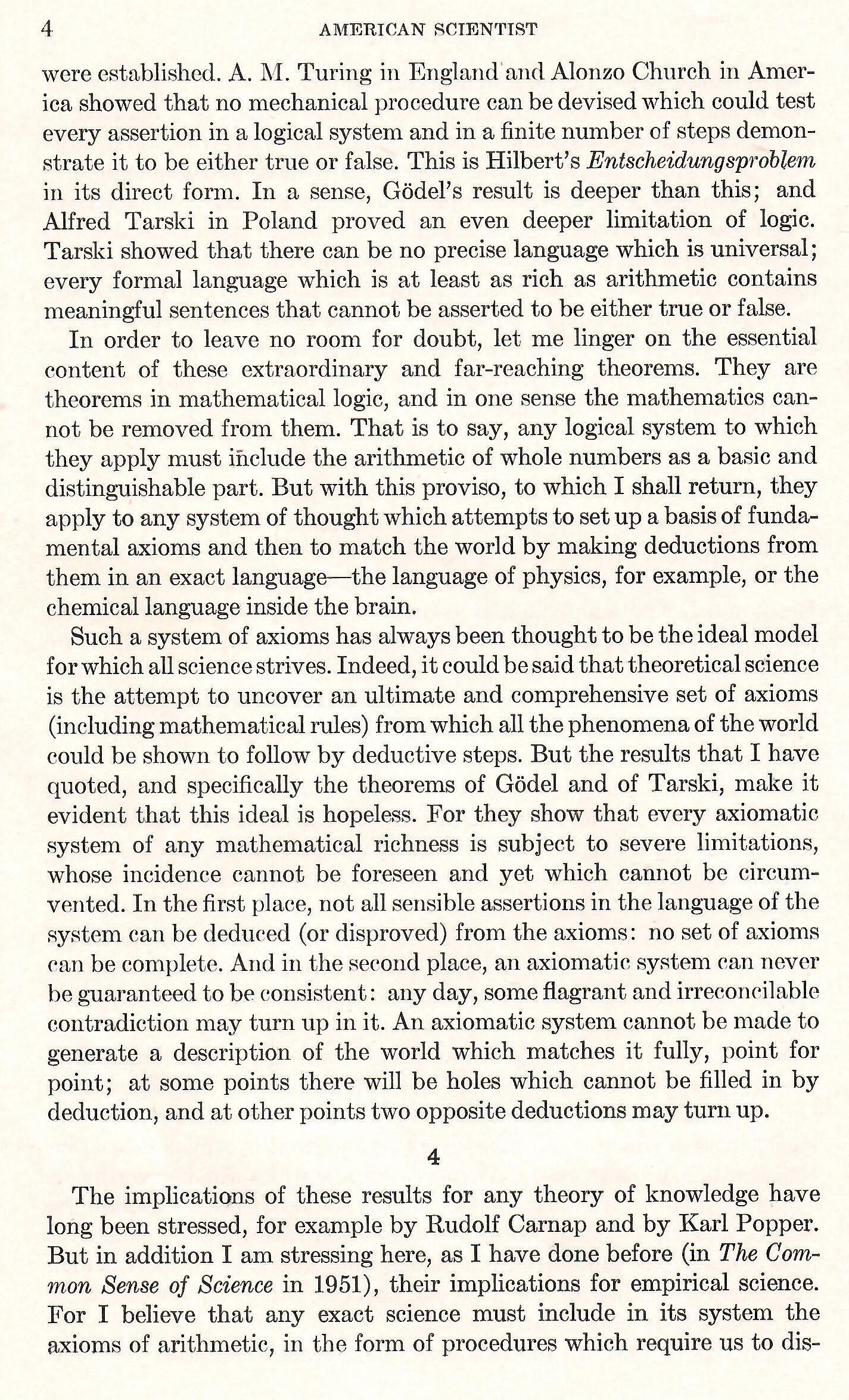
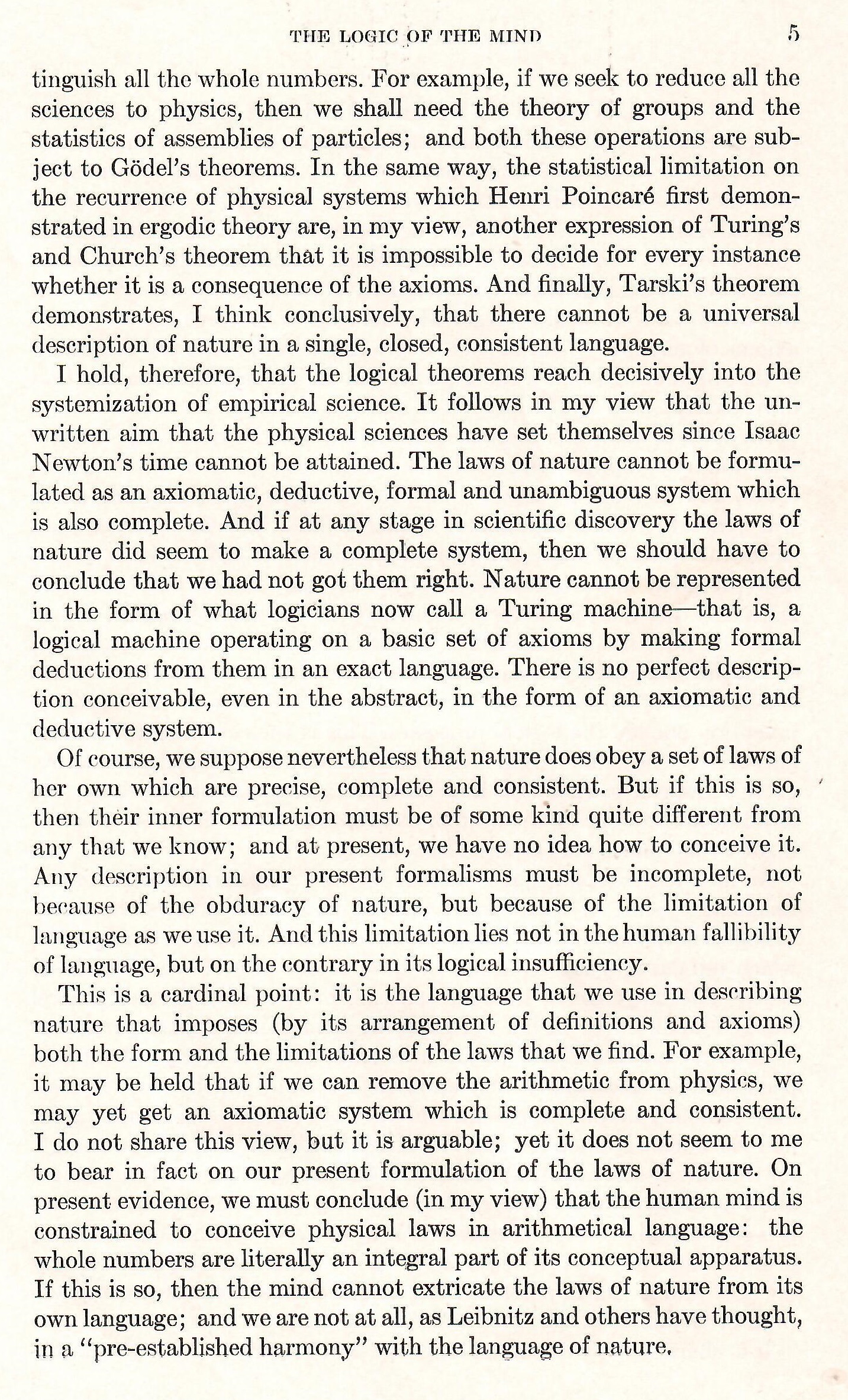
“The laws of nature cannot be formulated as an axiomatic, deductive, formal, unambiguous system which is also complete.”
Interesting, considered in light of this passage from, SOCRATES AND HIS DIVINE SIGN.
“Perhaps, I ought to clarify what I mean by limited. Limited compared to what? Compared to other men? I may know more than many men and less than many others but compared to Limitless Deity my knowledge is limited by more than quantity alone. In some ways it does not exist at all. The stuff I call knowledge, the ‘things’ I know, are all seen upon careful analysis to be mere beliefs.
To Socrates Eleazar says, “In reality, I know nothing, as you have proven time and again.”
“Finally, another man who knows he knows nothing,” says Socrates.
“I also know why I know nothing. Why, I only believe things,” says Eleazar.
“Consider the logical consequences of how so-called human knowledge operates. Our man believes he knows a thing, but does he? To truly know this one thing, he would also need to have complete knowledge of every other thing related to it. Which in turn means, our man would need to have complete knowledge of everything related to those other things also. This operation taken to its logical conclusion shows that to know any one thing our man must know everything.”
Socrates says, “because I don’t possess complete knowledge of everything, I truly know nothing. I am a mere creature of belief. My thoughts and feelings, my determinations and desires are all based on very limited understandings, they are all beliefs. Incomplete understanding is belief, not knowledge.”
Eleazar says, “And considered in that light, real operational knowledge is impossible to limited minds. We claim to know things but look at the operation we use to know things. Our beliefs conceive things, independent things, salient things, things we abstract using our subjective perception. Perception relies on the processes of abstraction to create a perceived world of salient things, but concrete things are not salient. In true physical reality all things are related. Each to one another in the infinite and eternal universe of matter.”
“This is why the atomism of Leucippus is so suitable to an operational definition of omniscience. The mind of limitless Deity has on the one hand a subjective orientation. The subjective functioning of the mind of God corresponds with every particle in the infinite and eternal universe. This ever-present active coordination with the minutest aspect of every particle of physical reality is the substance of operational omniscience. Alongside subjective particle awareness are the operations characteristic of objectivity in the mind of God.”
“The Personality of Limitless Deity is aware of the particle universe functioning as a whole thing and the synergy which causes all the interrelated parts of physical reality to work together. The complimentary operations of subjective and objective orientations in the Personality of Limitless Deity result in a holistic understanding of reality in its entirety, and for our logical purposes this is an operational definition of omniscience. Every single part of the universe is forever organized as a coherent whole, understood as a whole, by a mind whose operations realize that understanding. Real knowledge is complete knowledge.”
Eleazar pauses a moment and says, “operational omniscience follows from the cognitive operations within the mind of God. God knows, because God can know. Man believes because that is all he can do.”
The Conclusion of Bronowski’s Article
